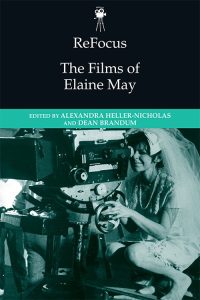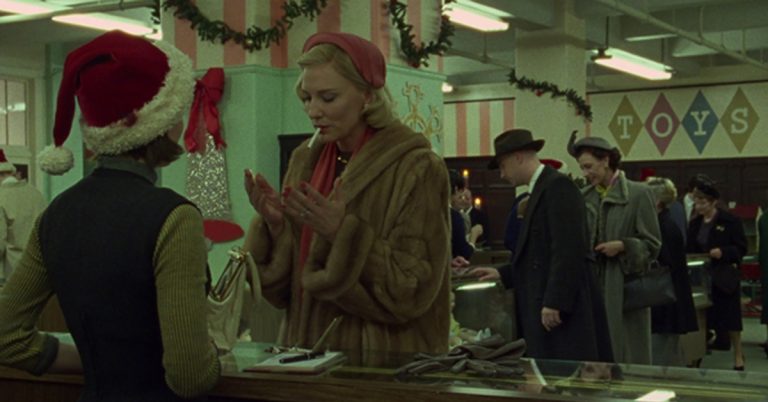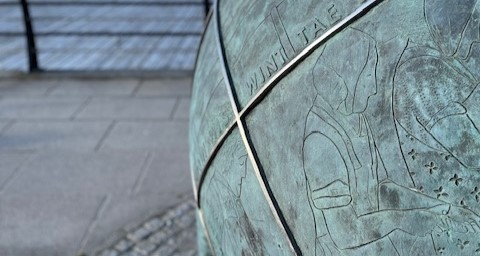
By Alexandra Heller-Nicholas and Dean Brandum
In late 2017, the annual “Black List” was released, a high-profile list of the most promising as yet unproduced screenplays circulating in Hollywood voted for by industry executives. This list of the top yet-to-be-made films sparks widespread interest both within the industry and for cinephiles with a general interest in film, often capturing the zeitgeist by tapping into what – and who – is causing the most buzz. That they remain unproduced means these films are perhaps not in commercial terms “safe bets.”
On 11 December 2017, Australian actor Margot Robbie announced in a statement on YouTube that Allie Hagan’s screenplay When in Doubt, Seduce was on the 2017 Black List, which Robbie describes a “a true story about the early relationship between Elaine May and Mike Nichols. So hopefully you’ll see it on the big screen one day!” Hagan spoke with us about her screenplay and her own relationship – emotional and professional – to the work of Elaine May and Mike Nichols.
The interview below is an extract from Refocus: The Films of Elaine May edited by Alexandra Heller-Nicholas and Dean Brandum
Alexandra Heller-Nicholas and Dean Brandum: So Allie, why Elaine May? Why now?

Allie Hagan: She is kind of having a moment, isn’t she? I routinely search for her name on Twitter and there are definitely a lot of people talking about her work. It’s been fuelled by the Blu-Ray release of A New Leaf [by Olive Films in December 2017] and things like Wasson’s Improv Nation and CNN’s docuseries about comedy that talked about Elaine. Also, she appeared on Broadway in 2018 for the first time in almost sixty years. But I think we’re also re-examining how women have historically been treated in Hollywood, and that lends itself to a conversation about Elaine. Everyone’s heard the rumors about her process, about how fraught all of her films were. She has a reputation for being a perfectionist, for being “difficult.” But it’s not like Mike was known as an easy-going guy. It’s kind of heart-breaking to look at their careers and see that he has the EGOT and she got totally blackballed after Ishtar.
AH-N & DB: What were the circumstances of you discovering Elaine May and her work?
AH: I fell into a Mike Nichols Wikipedia hole one night and never really came out of it. The first night I clicked on the Nichols and May Wikipedia page, I didn’t end up going to sleep. Teenagers in a Car was the first piece of theirs I saw that I became obsessed with. It’s still just as funny sixty years later.
AH-N & DB: Has it been difficult tackling a biographical-based project like this with one of the subjects still alive?
AH: Only in that I keep expecting to see her in a crowded restaurant or get an angry email from her. Of course, I wonder if she would dismiss it immediately as trash, the way they both dismissed Janet Coleman’s 1993 book The Compass: The Improvisational Theatre that Revolutionized American Comedy. The script is heavily researched, but there’s not a lot from her perspective (and she’s an unreliable narrator when she does give interviews), and there’s only so much you can ever know about a relationship that doesn’t involve you. While I was writing it, I was conscious of the fact that the tales of their partnership were almost 100 per cent told by Mike Nichols. I tried very hard to be cognizant of the uneven distribution of authorship in their story and to take into account other people’s bias. Later in life, he would put the blame for their fights entirely on himself.
AH-N & DB: What do you think lies at the heart of the dynamic between the May and Nichols collaboration?
AH: Unparalleled intelligence and sexual tension. They were uniquely able to pinpoint funny or awkward or strange elements of being a human, and to make timeless comedy out of those moments. Someone likened their comedy to seeing something performed that you thought you had only ever felt or experienced yourself.
They basically invented this art form together—I don’t know how you can go through that together and not want to marry that person. There’s a quote of Mike’s—“We had a brief relationship, and then we decided we would be better off doing all this stuff to other people and keeping us for each other.” Kill me. It’s just the most devastatingly sexy thing ever.
AH-N & DB: And it’s really beautiful and romantic, too. Devil’s advocate here: do you think their work would have been as strong if they had developed a sexually intimate relationship, or was it that magnetic, unfulfilled attraction that added to their dynamic?
AH: Hmm. Good question. The only honest answer is “I don’t know,” because for all we know, they were totally hooking up the whole time. (The evidence does not support this.)
- ReFocus: The Films of Elaine May edited by Alexandra Heller-Nicholas and Dean Brandum is available now. Find out more on the Edinburgh University Press website






